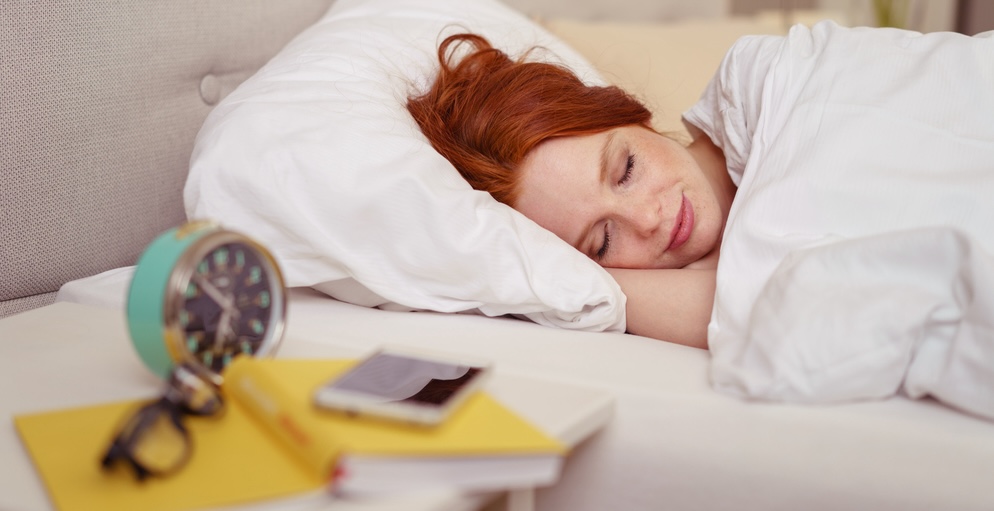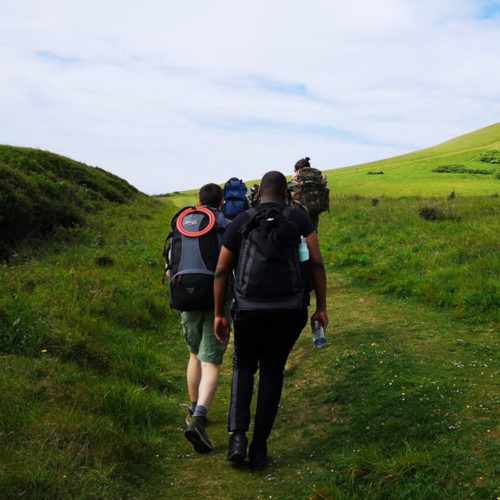
Blog
Breaking the Cycle: How Sleep Disorders Fuel Chronic Pain and How to Stop It
“The shorter your sleep, the shorter your life.” – Matthew Walker
Sleep is not just a time of rest; it’s the foundation of physical and mental health. It’s during sleep that your body repairs itself, balances its systems, and resets for a new day. But what happens when sleep disorders disrupt this process? For many, conditions such as insomnia, sleep apnoea, or restless leg syndrome lead to more than groggy mornings—they fuel chronic pain, fatigue, and systemic inflammation.
Worse still, chronic pain can disrupt your ability to sleep, creating a feedback loop that is difficult to escape. Let’s explore how sleep and pain are interconnected, practical ways to improve your sleep, and how osteopathy can help you break this vicious cycle.
How Sleep Disorders Lead to Chronic Pain
 Disrupted sleep compromises your body’s ability to heal and function. During the deep stages of sleep, your body performs critical tasks such as tissue repair, hormone regulation, and immune support. Without adequate restorative sleep, these processes falter, leading to:
Disrupted sleep compromises your body’s ability to heal and function. During the deep stages of sleep, your body performs critical tasks such as tissue repair, hormone regulation, and immune support. Without adequate restorative sleep, these processes falter, leading to:
- Increased Pain Sensitivity: Poor sleep lowers your pain threshold, amplifying discomfort.
- Mood. Poor sleep more susceptible to low mood
- Chronic Inflammation: Sleep deprivation triggers inflammation, contributing to conditions like arthritis and fibromyalgia.
- Sleep Disturbance: Without restorative sleep, injuries take longer to heal, prolonging discomfort and limiting mobility.
The Feedback Loop Between Sleep and Pain
Chronic pain doesn’t just result from poor sleep—it worsens it. Here’s how the cycle perpetuates: (see figure1))
- Pain disrupts sleep, making it harder to relax and reach deep, restorative stages of rest.
- Lack of restorative sleep worsens pain, increasing inflammation and sensitivity to discomfort.
Breaking free from this loop requires a multi-faceted approach, combining better sleep hygiene, stress management, and targeted therapies like osteopathy.
Sleep Hygiene Tips
Improving your sleep hygiene can help you regain control over your nights. Start by optimising your sleep environment and adopting habits that encourage restorative sleep.

How Osteopathy Can Help Break the Cycle
Osteopathy is a holistic healthcare approach that addresses the structural and functional imbalances that contribute to chronic pain and disrupted sleep. By targeting the root causes, osteopathy helps your body restore its natural rhythms.
Key Benefits of Osteopathy for Sleep and Pain
-
Addressing Muscular Imbalances
- Osteopaths use gentle manual techniques to alleviate tension, correct posture, and promote optimal alignment. This can help reduce pain and improve your body’s ability to relax during sleep.
-
Enhancing Relaxation
- Techniques such as cranial osteopathy and soft tissue manipulation calm the nervous system, reducing stress and promoting restful sleep.
-
Supporting Circulation and Healing
- By improving blood flow and lymphatic drainage, osteopathy aids in recovery and reduces inflammation, addressing key contributors to pain.
- By improving blood flow and lymphatic drainage, osteopathy aids in recovery and reduces inflammation, addressing key contributors to pain.
-
Personalised Care
- Osteopaths tailor treatments to your unique needs, helping you identify and resolve the underlying factors that disturb your sleep and cause pain.
Break the Cycle and Reclaim Restful Sleep
Don’t let poor sleep and chronic pain control your life. With science-backed strategies and professional support, you can break free from the cycle and enjoy restful nights and pain-free days.
Take the first step today! Book a consultation with our experienced osteopaths and discover how we care can help you achieve restorative sleep and improved health.
“Sleep is the golden chain that ties health and our bodies together.” – Thomas Dekker
References
Finan, P. H., Goodin, B. R., & Smith, M. T. (2013). The association of sleep and pain: An update and a path forward. Journal of Pain Research.
Irwin, M. R. (2015). Why sleep is important for health: A psychoneuroimmunology perspective. Annual Review of Psychology.
Meltzer, L. J., & Mindell, J. A. (2006). Sleep and Pain Management in Adults. Sleep Medicine Clinics.
Cosio D. Sleep-Wake Disorders and Chronic Pain: Reciprocal and Interactive Effects.
Walker, Matthew. Why We Sleep. Penguin Books, 2018.
Pract Pain Manag. 2017;17(6).
ttps://www.nosleeplessnights.com/sleep-hygiene/

Pure Dynamic Osteopathy
Pure Dynamic Osteopathy and Physiotherapy is a multi-disciplinary practice in both Crouch End and Hornsey, North London.

